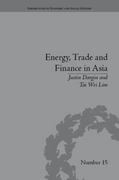Question
1. The economics of an education - At the most basic to gain a higher education you must make trade-offs. Work now full time vs.
1. The economics of an education - At the most basic to gain a higher education you must make trade-offs. Work now full time vs. going to school. There has been so much talk around the fact that youmay not need a college education. I am personally shocked at this only because if youlook at employment and salary figures of college educated people they continually are well above high school graduates. I am not saying the manufacturing jobs don't pay really well and that you can make an awesome wage in these industries, but those industries still needs skills. So in this essay topic - research and write about the trade offs of going to college, having student loans ,and your future work potential (your potential salary for your preferred work.)
2. Savings and wealth -Although the United States is one of the richest nations in the world, it is also one of the world's largest debtor nation. We oftenhear that the problem is our low savings rate. Suppose policy makers attempt to rectify this be encouraging greater savings in the economy. What could they do to make you save more?What effects would their successful attemptshave on GDP? Is this a good or bad idea? What can you do to increase your savings rate? Also, how is wealth related to savings?
3. This is a little like the above question, but I am providing you with an interesting article - How Behavior Economics Can Help You Retire Rich.
This should be 1 to 2 pages, double spaced. You must include references (APA or MLA format.)
Step by Step Solution
There are 3 Steps involved in it
Step: 1

Get Instant Access to Expert-Tailored Solutions
See step-by-step solutions with expert insights and AI powered tools for academic success
Step: 2

Step: 3

Ace Your Homework with AI
Get the answers you need in no time with our AI-driven, step-by-step assistance
Get Started


